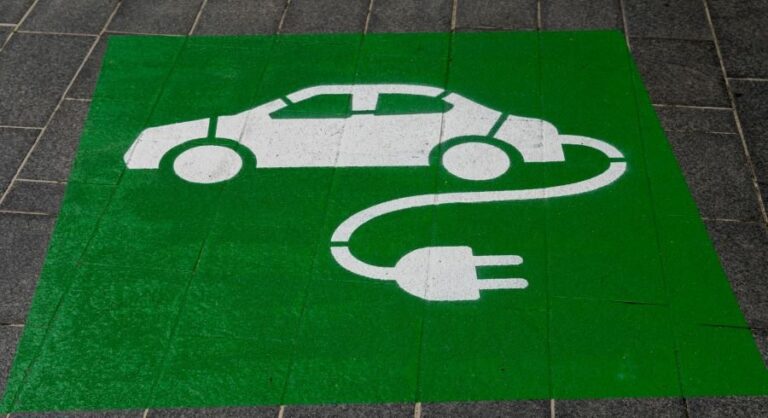Do electric cars need an MOT?
-
The answer is yes. In line with UK regulations all cars, including electric vehicles, must have an MOT every year (if over 3 years old) to ensure they are safe to drive on UK roads.
Charging at Work: How to get an EV charge point for your office?
-
For employees, charging at work can be a convenient way to recharge an EV whilst parked during the day. From a business point of view, having a charge point at the workplace will become increasingly important as a facility for employees and visitors, while for businesses with an EV fleet it can be an essential operating factor.
Similar to the EV Chargepoint Grant, the Government offers businesses, charities and public sector organisations that meet applicant and site eligibility criteria financial support to have charge points installed at their premises under the Workplace Charging Scheme (WCS).
The grant covers up to 75% of the total costs of the purchase and installation of EV charge points (inclusive of VAT), capped at a maximum of £350 per socket, up to a maximum of 40 sockets across all sites per applicant. If you would like to install them in 40 sites, for instance, you will have one socket available per site.
Funded by the Government’s Office for Zero Emission Vehicles (OZEV), the WCS provides a grant for businesses to reduce the cost of having an EV charge point installed at their premises.
The grant allows businesses, charities, and local authorities to claim 75% of the total cost of installation, up to a maximum of £350 per socket installed, and with a maximum of 40 sockets across all sites for each applicant. Firms based in the United Kingdom (exc. Channel Islands and Isle of Man) can claim and don’t necessarily need a plug-in vehicle on the company’s books.
The charge points are required to have a need declared for them on application, which could include: existing EV fleet vehicles, to add an incentive for the uptake of plug-in vehicles with staff, to provide a charging solution for visitors, or to charge EVs planned to be purchased by the business. Charging for customers (where applicable) is not eligible for WCS funding.
Standard three-pin sockets are not eligible for funding, and the EV charge points can only be fitted by accredited OZEV installers. These must provide a minimum of 3 kW, with the supply not diminished by charging multiple vehicles simultaneously. Companies cannot claim for existing EV charging points, as the grant is available only for new charge points yet to be installed. The company also has to have dedicated off-street parking for staff, visitors or fleet use.
More details on the WCS can be found on the OZEV website.
Customer and visitor electric cars will have different charging connectivity needs, so it is important to install a charging point most likely to be compatible with the widest range of vehicles possible. The most common workplace installation is a wall-mounted Type 2 7kW charger, which is compatible with most of the best-selling electric vehicles and can charge a vehicle fully in around 3-7 hours, depending on model. Some businesses may wish to install a faster 22kW unit or even a rapid charger if cost and space allow. See our charging basics page for more info on different charging points.
Most workplace installations select wall-mounted units as they are typically cheaper to install. The alternative is a post, which are good options but usually have higher installation costs due to the need to get the electricity to the post under the ground.
For businesses that plan to install charge points in areas that are publicly accessible, it is essential to consider access requirements. Most charge point manufacturers offer units that can be accessed with either a key or RFID card to prevent unwanted usage.
The majority of manufacturers offer some form of back-office support to report on energy use, charge point use and CO2 impact. The level of assistance varies and can usually be tailored as a package for the company buying the service, from basic maintenance to full network support.



